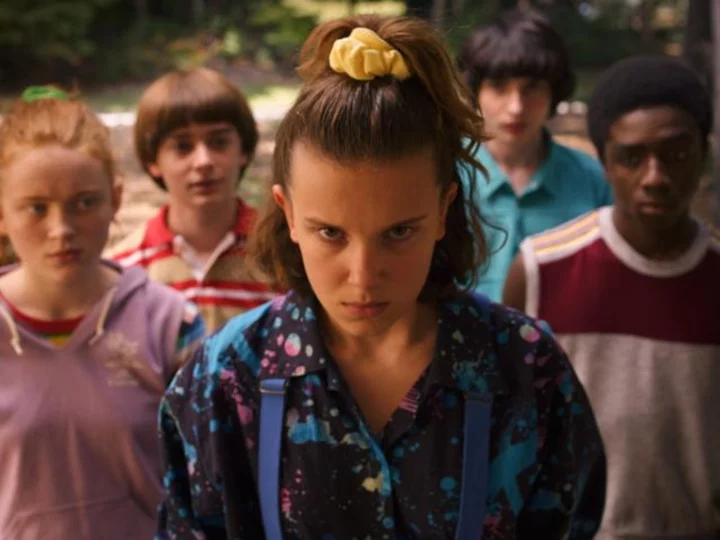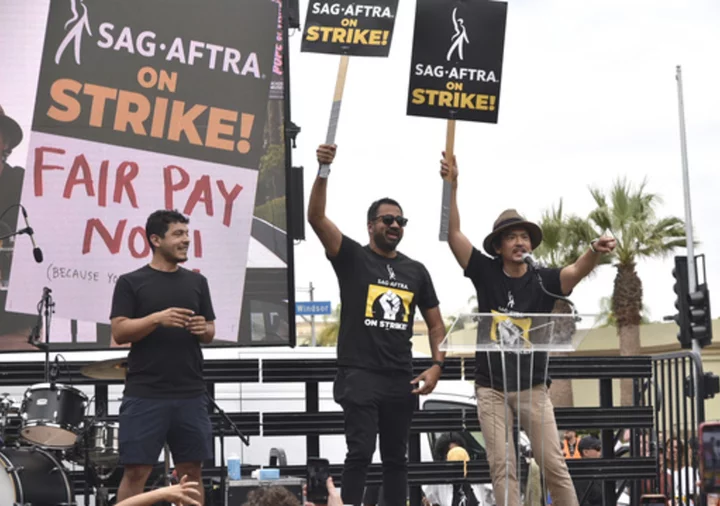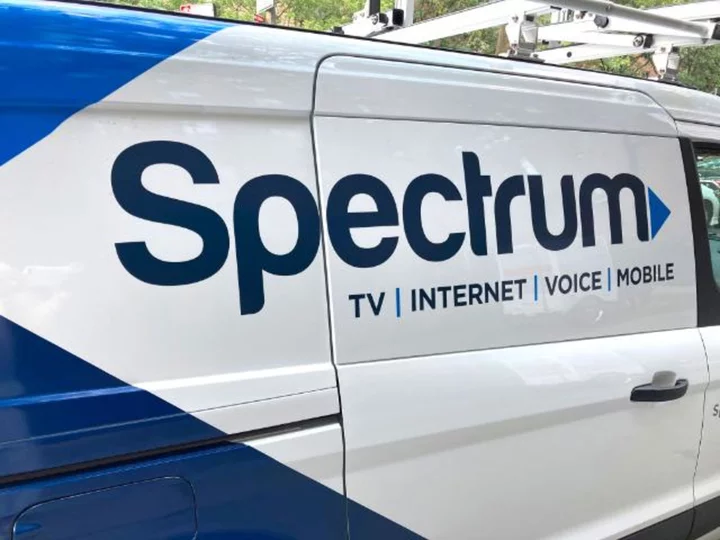Many issues divide studios and streamers from the striking talent guilds, but one key sticking point involves how writers and actors should be fairly compensated for their work in streaming. And a major complication there is that streaming success remains such an impenetrable formula, influenced by resistance to provide clear data and hard-to-measure factors that cloud what constitutes a "hit."
In an interesting piece for Bloomberg, Lucas Shaw observed that streaming services' lack of transparency about viewership is less about hiding their hits than covering up their failures. Those companies, he noted, "are spending a lot of money on shows people aren't watching," which is almost certainly true.
The problem with that is audience levels aren't the only metric when weighing the value of streaming series. Because unlike the old TV math -- people watch show + network sells ads = profit -- there are all kinds of benefits a show or movie can yield, or not, if you think about streaming services as big box stores, where luring customers inside, and keeping them there, is as much the objective as what they buy while perusing the shelves.
Parrot Analytics, the media consulting and measurement firm, touched on this in breaking down criteria that determine a streaming show's worth, from attracting hard-to-reach audience segments (thus giving different family members an incentive to subscribe -- and keep subscribing) to their "flywheel effects," or those titles that "work best with one another to extend a user's stay" by leading them to complementary programs.
Another, less-discussed factor involves publicity, and how programs can serve as ambassadors to promote the service.
Take "Stranger Things," one of Netflix's most popular series. Yet the actual viewership almost pales next to the volume of media coverage the nostalgic sci-fi show generates, offering the bonus of helping to keep Netflix top of mind even among those who don't watch it.
Similarly, "The Lord of the Rings: The Rings of Power" attracted a record audience for Amazon when the show premiered, only to see the heat surrounding it cool considerably. But beyond the eyeballs drawn to Prime Video, there were all those articles trumpeting its debut, even if many asked whether the prequel could possibly justify Amazon's massive bet on it.
This premium-TV strategy of stirring conversation is something HBO understood long before streaming became a competitor. The pay network courted awards and media recognition, often with projects fronted by big-name stars -- some of them watched by few people other than salivating TV critics -- that built the channel's prestige and stoked the sense it was worth continuing to subscribe.
Even if you didn't watch "The Wire" or "Boardwalk Empire," getting HBO meant hanging around with the cool kids.
Nor does viewership data for individual titles entirely solve the multifaceted riddle about why people subscribe or cancel. After all, you're not paying Netflix directly to watch "Cobra Kai" or "Wednesday," but for a whole suite of programming for that monthly fee.
If benefits of big hits seem obvious, that still just scratches the surface. In the past, HBO spoke of stitching together a quilt to expand its appeal to different groups. From that perspective, the less overlap between "The Lord of the Rings," the dark superhero satire "The Boys" and young-adult show "The Summer I Turned Pretty," potentially the better for Amazon.
With streamers relying more on advertising these dynamics could evolve -- or perhaps more accurately, go back to the future, with more conventional ratings and advertising-driven calculations.
For now, though, even with all the granular metrics to which the studios and streamers have access, distilling what mix of ingredients adds up to getting and sustaining a subscriber's $10 or $12 a month isn't an exact science. That's why Parrot colorfully described the process of assembling a streaming lineup as "akin to playing 3D chess while blindfolded on a roller coaster."
That's the board negotiators face whenever they formally sit down to hammer out new guild deals. While an eventual agreement will close this painful chapter of labor strife, based on the uncertain economics of streaming, Hollywood could still be in for a bumpy ride.









